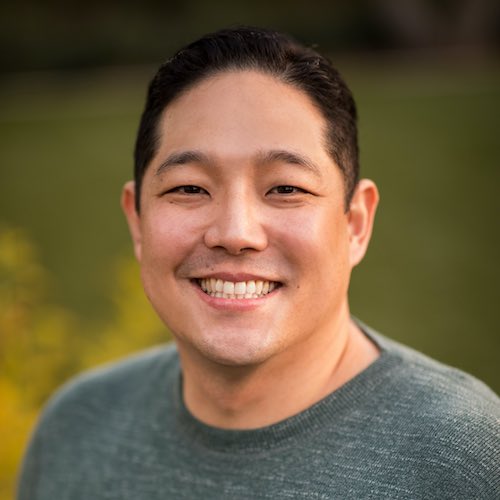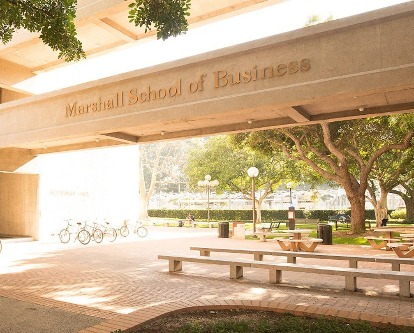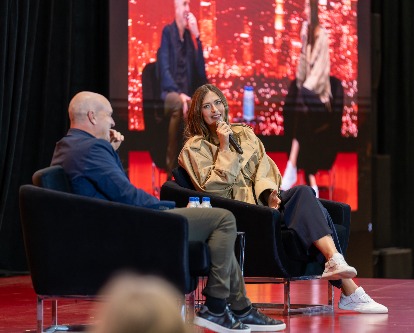Jerry Won ’04 has always loved storytelling. He also regrets that many great stories never get told.

“We know that Asian Americans are doing cool stuff, that other people of color are doing amazing things, but no one is talking to us,” says Won. “We don’t hear about Asian Americans and their impact on the community, in schools and businesses. Their stories need to be heard.”
That’s the reason Won left the corporate world — where he worked in sales and then consulting after an MBA from Michigan — to launch Just Like Media, where most of his work in podcasting and public speaking aims to elevate marginalized Asian American voices.
His latest podcast is “Marshall Voices,” a collaboration between Marshall Alumni Relations and Marketing and Communications. Combining his “passion for storytelling, profession as a podcaster and podcast producer, and his love for Marshall” the podcast series invites students, faculty, alumni, staff and stakeholders to talk about business and cultural topics.
The podcast is new, launched in December 2021, and explores the question: “What does work look like in a post-pandemic world, and how has the way we view work changed?” In an NPR or New York Times podcast style, Won weaves his narration with contributions from USC Marshall Assistant Professor of Management and Organization Eric Anicich, Onma Lwin (director of Undergraduate Career Services), Marianne Koshar (HR director at Boeing) and Erin Pindus, a second-year student in the Marshall Full-Time MBA program.
“We want to amplify a variety of voices, diverse not only in race, ethnicity and gender but also in experiences and perspectives, and to showcase the wonderful work we’re doing at Marshall,” Won says. “Yes, it’s a podcast for our school and we want to hit the business narratives, but the goal is to really have the voices on the show reflect the true diversity that makes Marshall a global brand and global community.”
A two-part January podcast focuses on supply chain. February’s podcast will tackle the business, cultural and economic impacts of large-scale athletic events including the Super Bowl. March explores Web3 and the future of education and business.
USC and the Marshall School have earned a lot from the pandemic, Won says. Zoom opened up a world of opportunity for guest speakers from around the world to speak at USC, not just locals or those how happen to be in town. Furthermore, he believes the podcast, a lo-fi technology that is easy to capture and access, is the perfect medium for storytelling.
“We can interview somebody from China, India or Europe and have their voices represented even though they can’t sit in person at a campus event.”
For Won, who is a board member with the Marshall Volunteer Leadership Council and served on the board of the Asian Pacific Alumni Association and his 10th-year reunion committee, “Marshall Voices” is about more than giving back.
“It’s about what other impact are you having?” he says. When he asks the Asian American Marshall students he mentors where they find inspiration, they don’t have an answer. “When students look at events, they need to find somebody they resonate with.”
And as a father of two young children, Won doesn’t want them to have the same experience in 20 years. “It’s a problem that I can do my part to fix today.”




